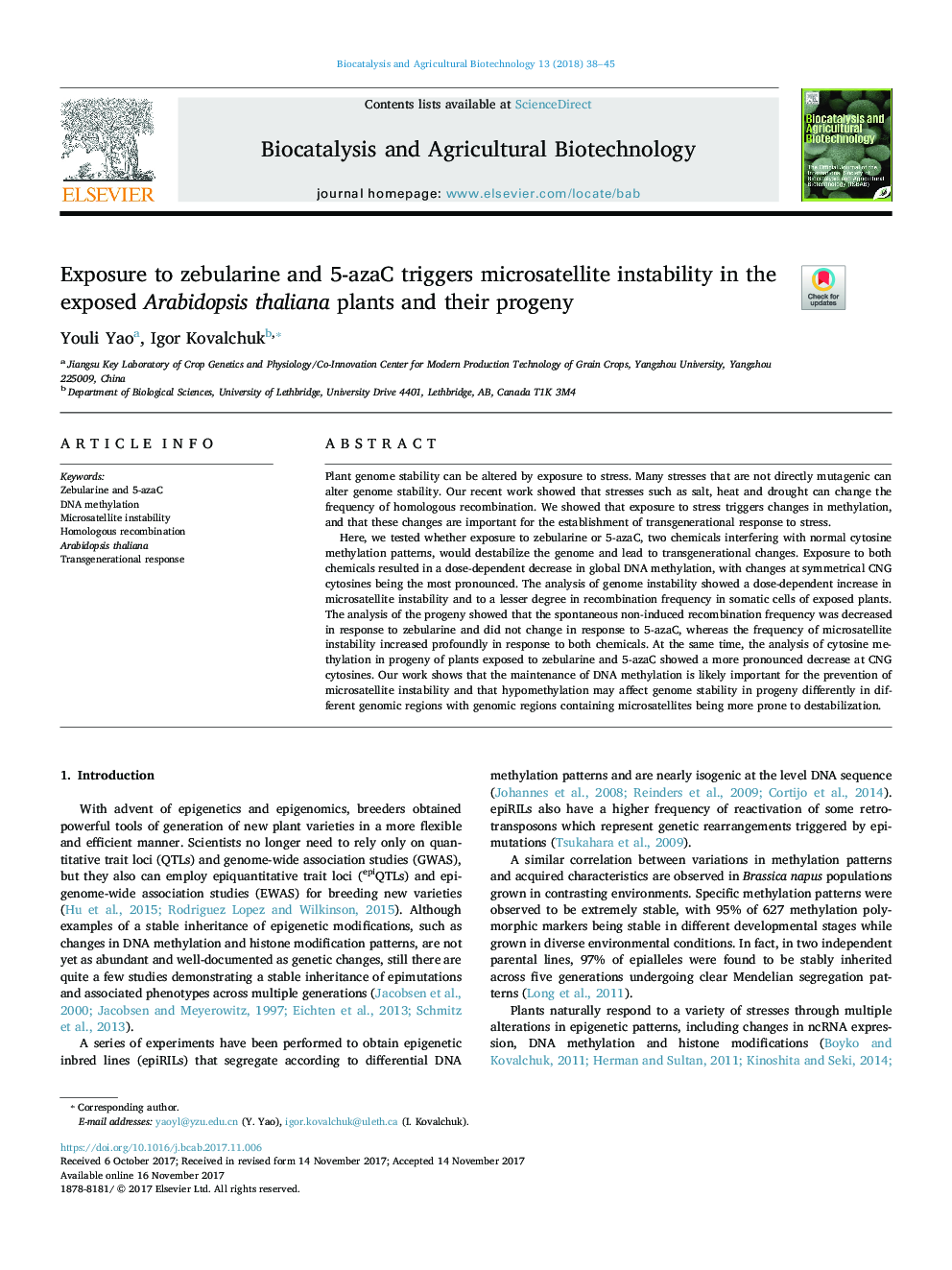| Article ID | Journal | Published Year | Pages | File Type |
|---|---|---|---|---|
| 8405915 | Biocatalysis and Agricultural Biotechnology | 2018 | 8 Pages |
Abstract
Here, we tested whether exposure to zebularine or 5-azaC, two chemicals interfering with normal cytosine methylation patterns, would destabilize the genome and lead to transgenerational changes. Exposure to both chemicals resulted in a dose-dependent decrease in global DNA methylation, with changes at symmetrical CNG cytosines being the most pronounced. The analysis of genome instability showed a dose-dependent increase in microsatellite instability and to a lesser degree in recombination frequency in somatic cells of exposed plants. The analysis of the progeny showed that the spontaneous non-induced recombination frequency was decreased in response to zebularine and did not change in response to 5-azaC, whereas the frequency of microsatellite instability increased profoundly in response to both chemicals. At the same time, the analysis of cytosine methylation in progeny of plants exposed to zebularine and 5-azaC showed a more pronounced decrease at CNG cytosines. Our work shows that the maintenance of DNA methylation is likely important for the prevention of microsatellite instability and that hypomethylation may affect genome stability in progeny differently in different genomic regions with genomic regions containing microsatellites being more prone to destabilization.
Related Topics
Life Sciences
Agricultural and Biological Sciences
Agricultural and Biological Sciences (General)
Authors
Youli Yao, Igor Kovalchuk,
